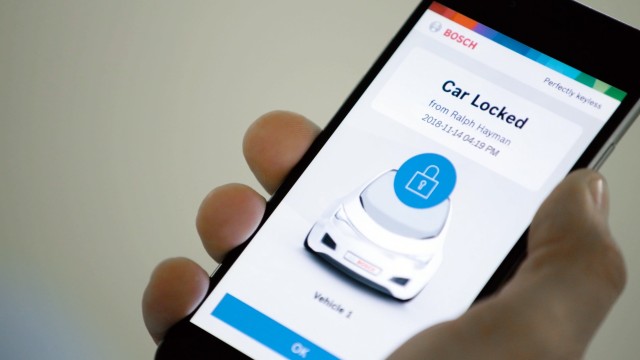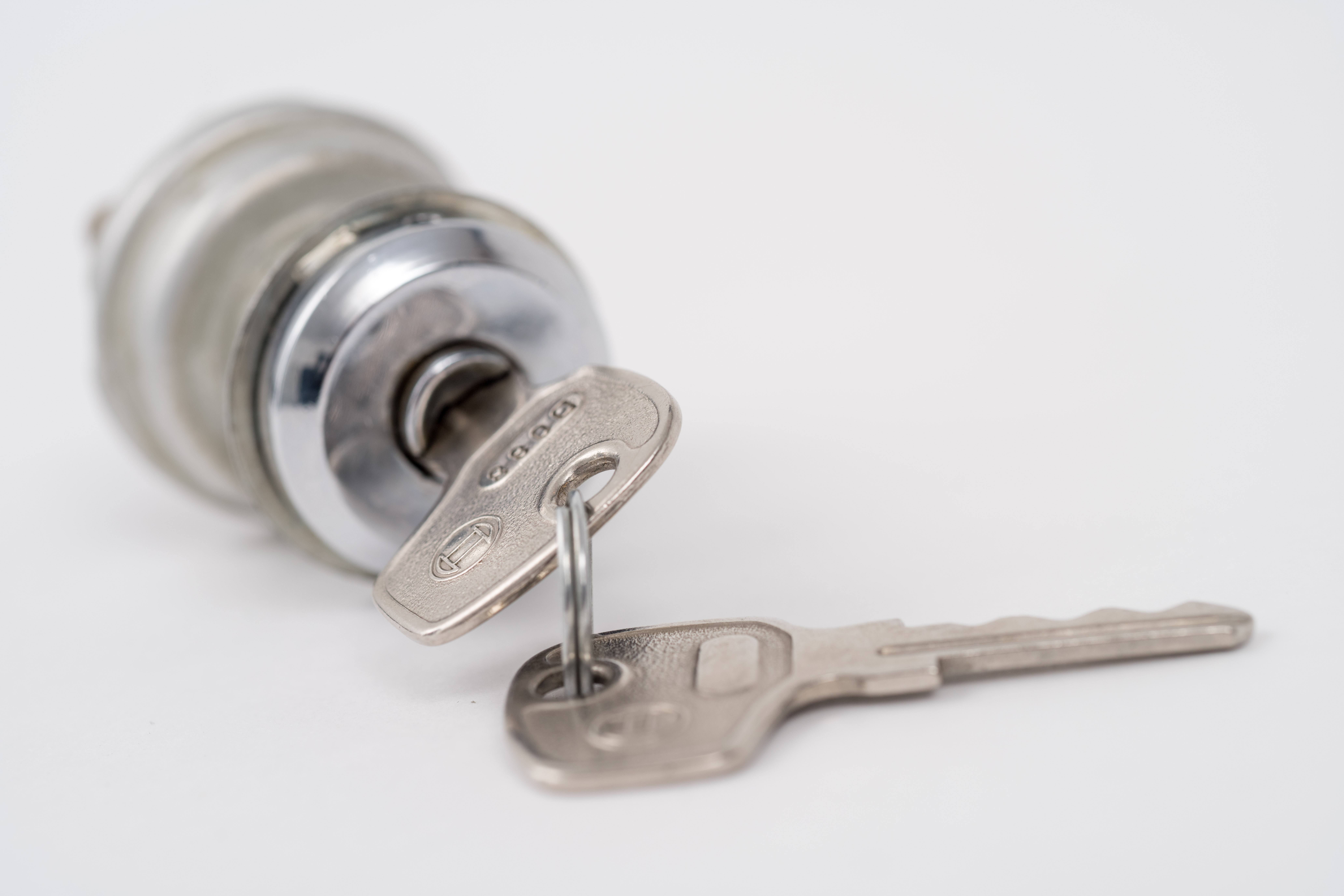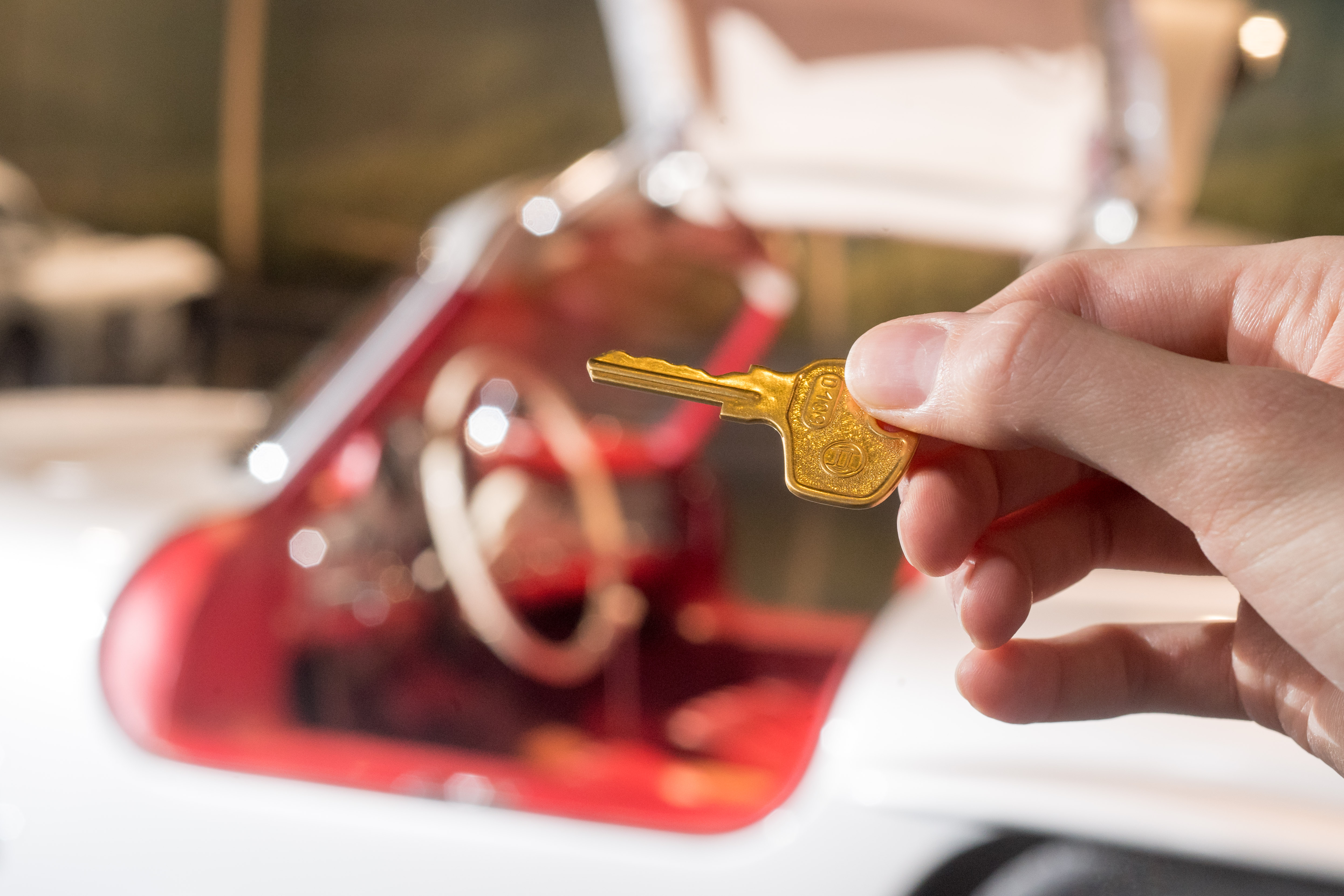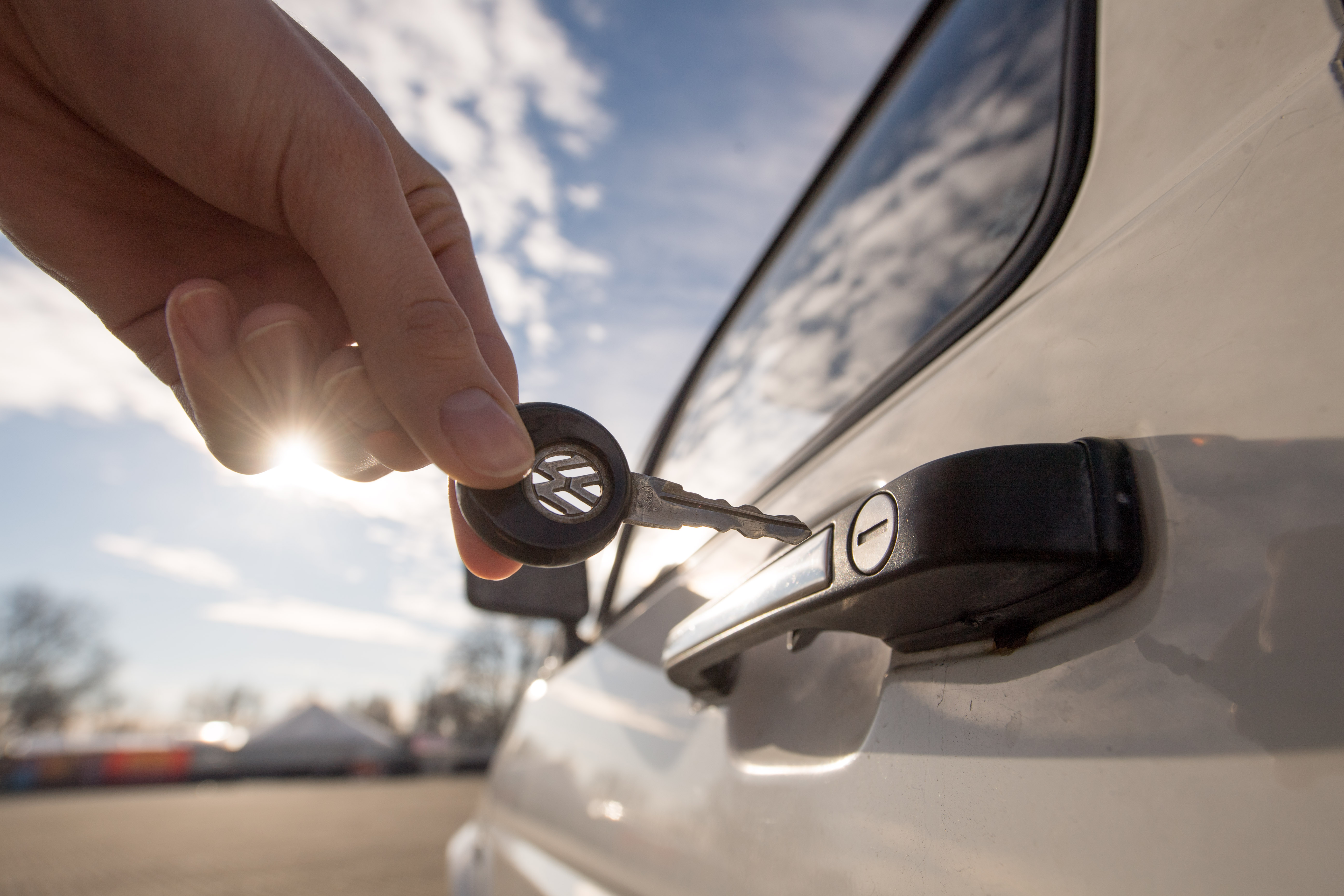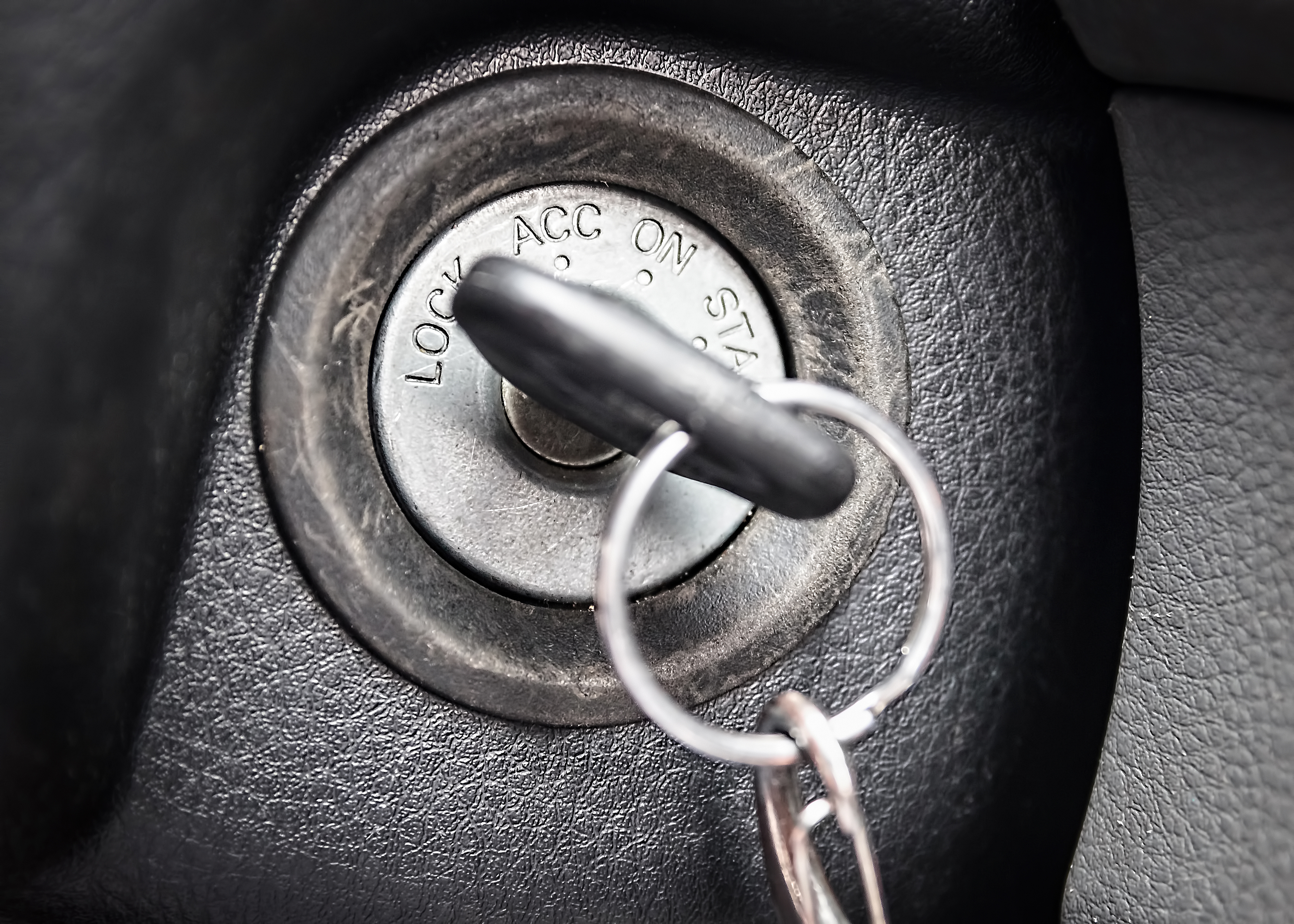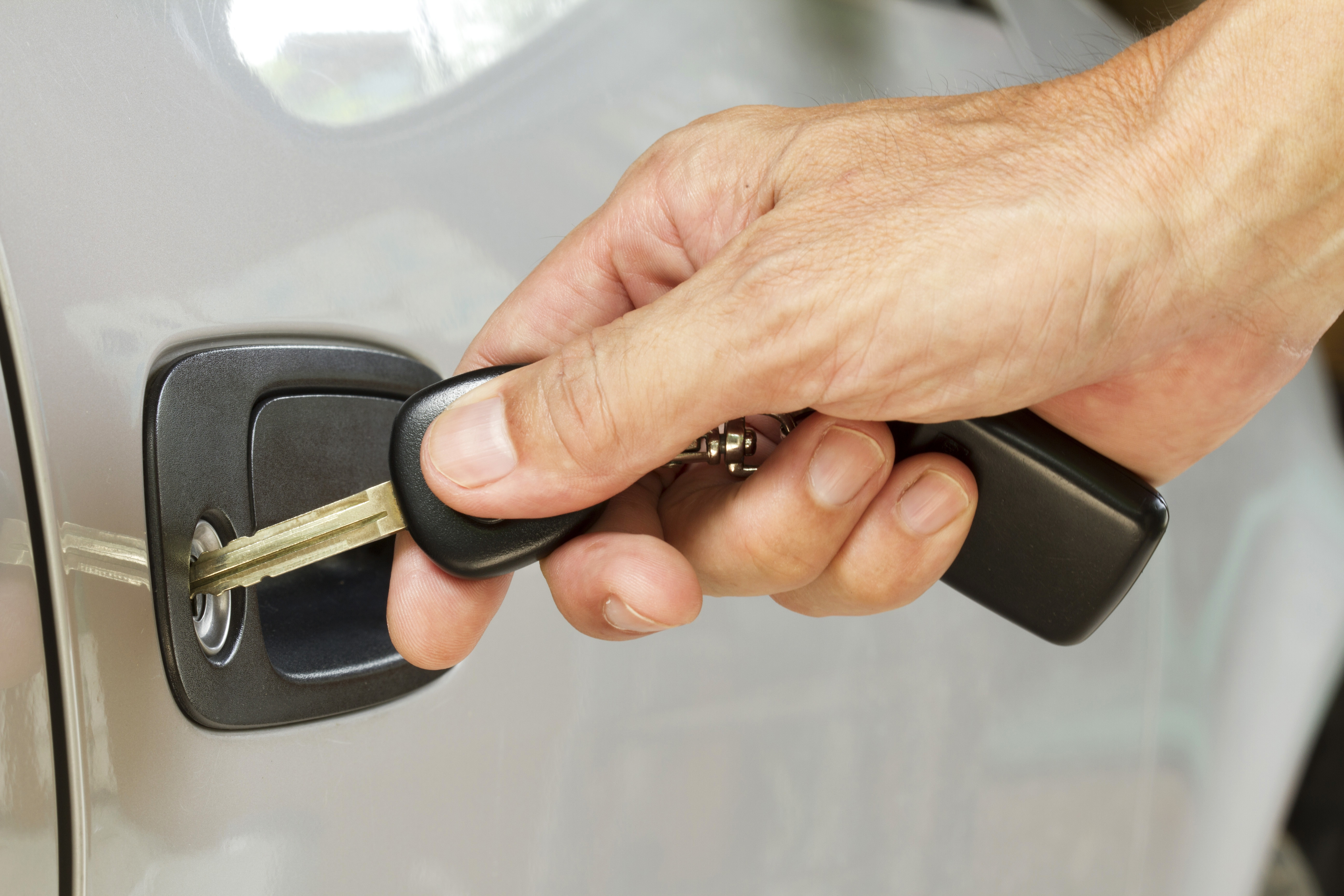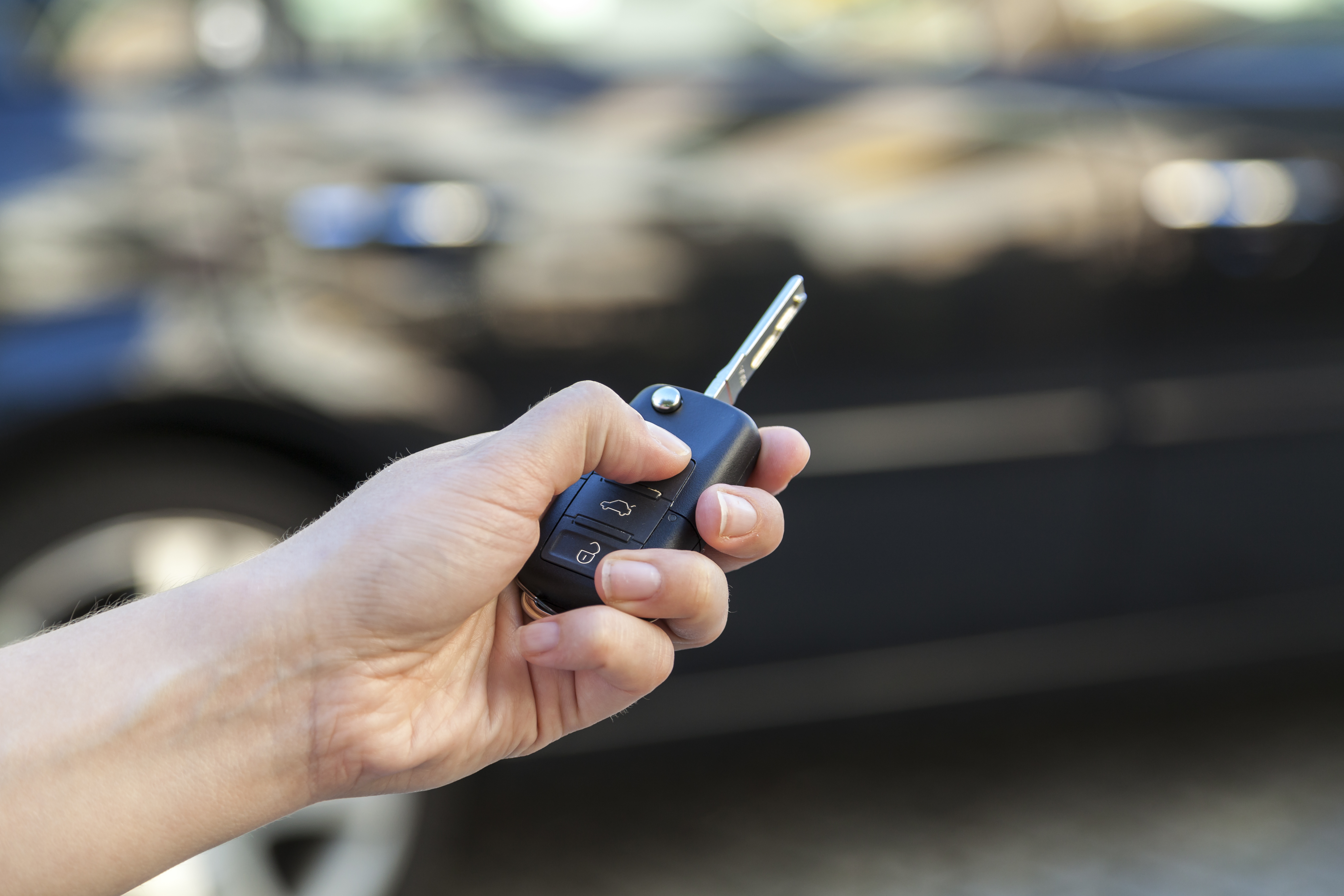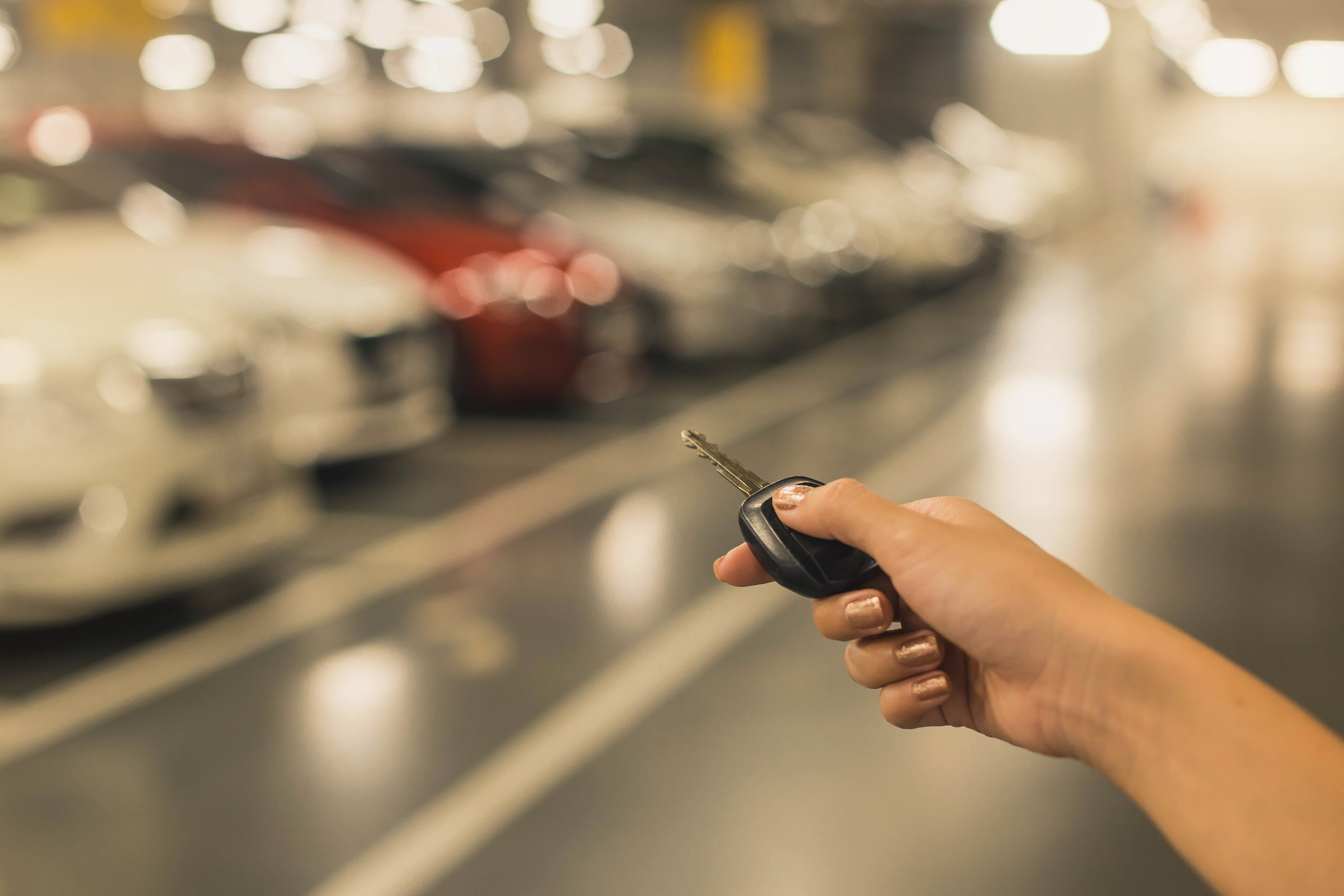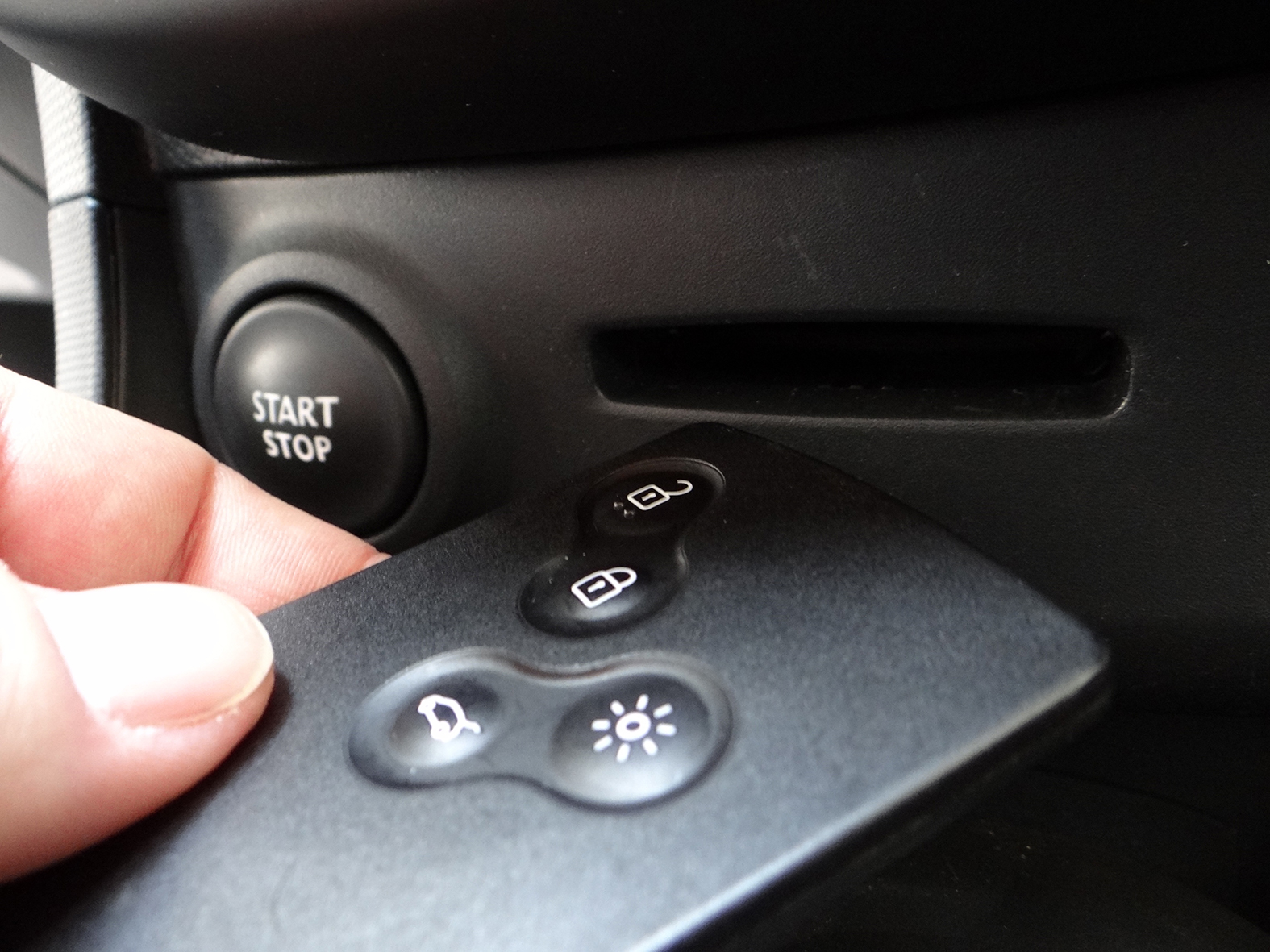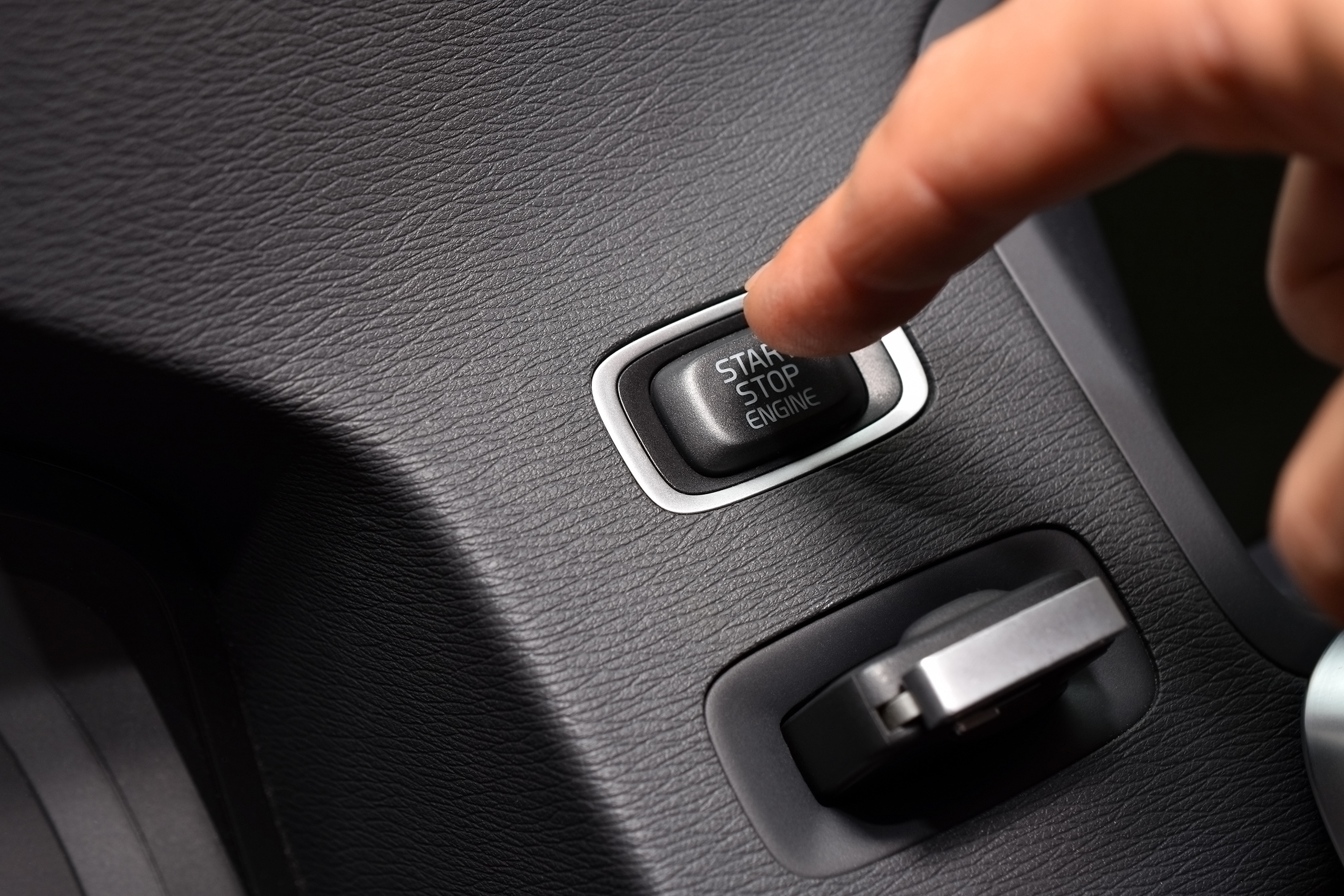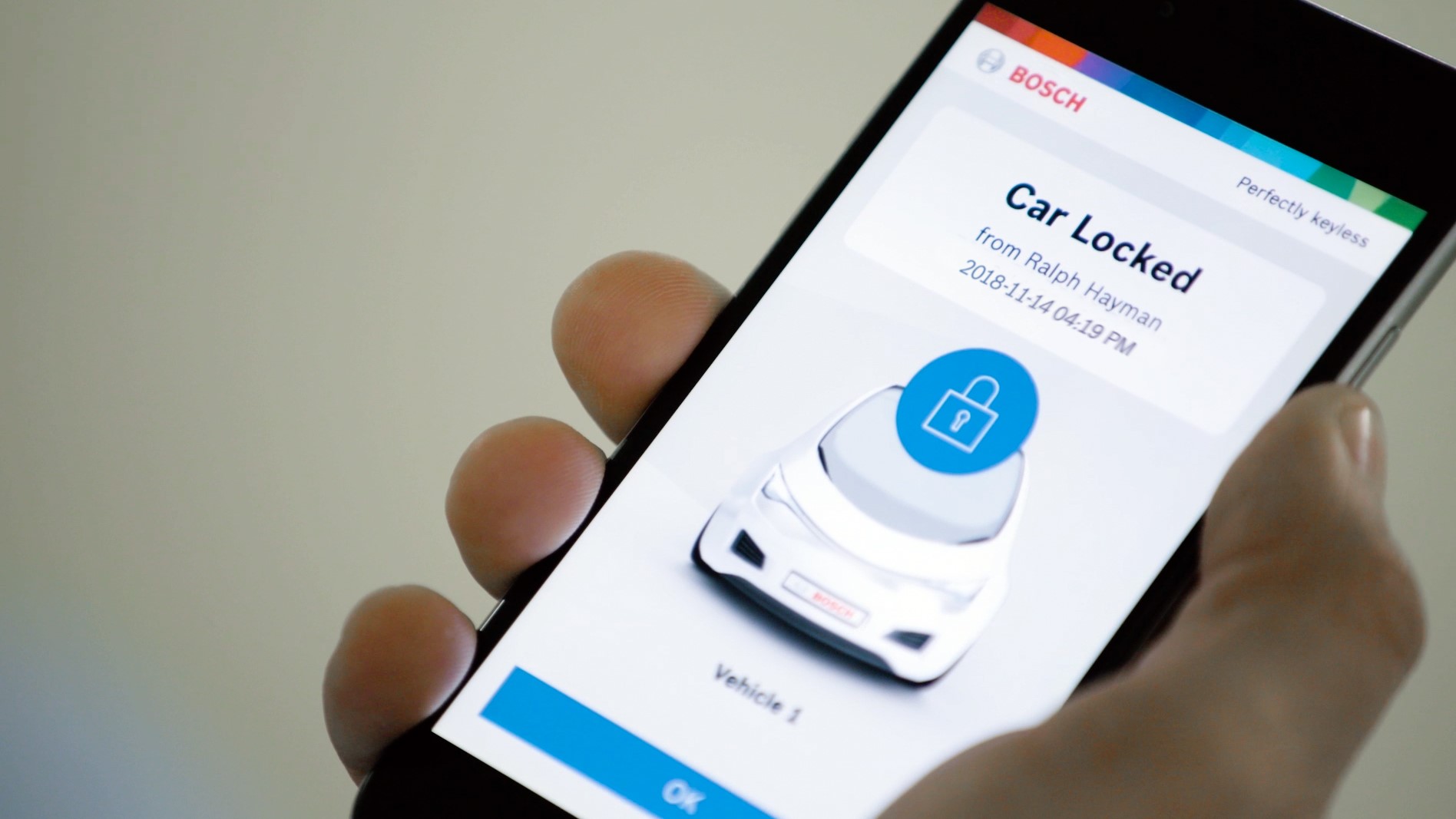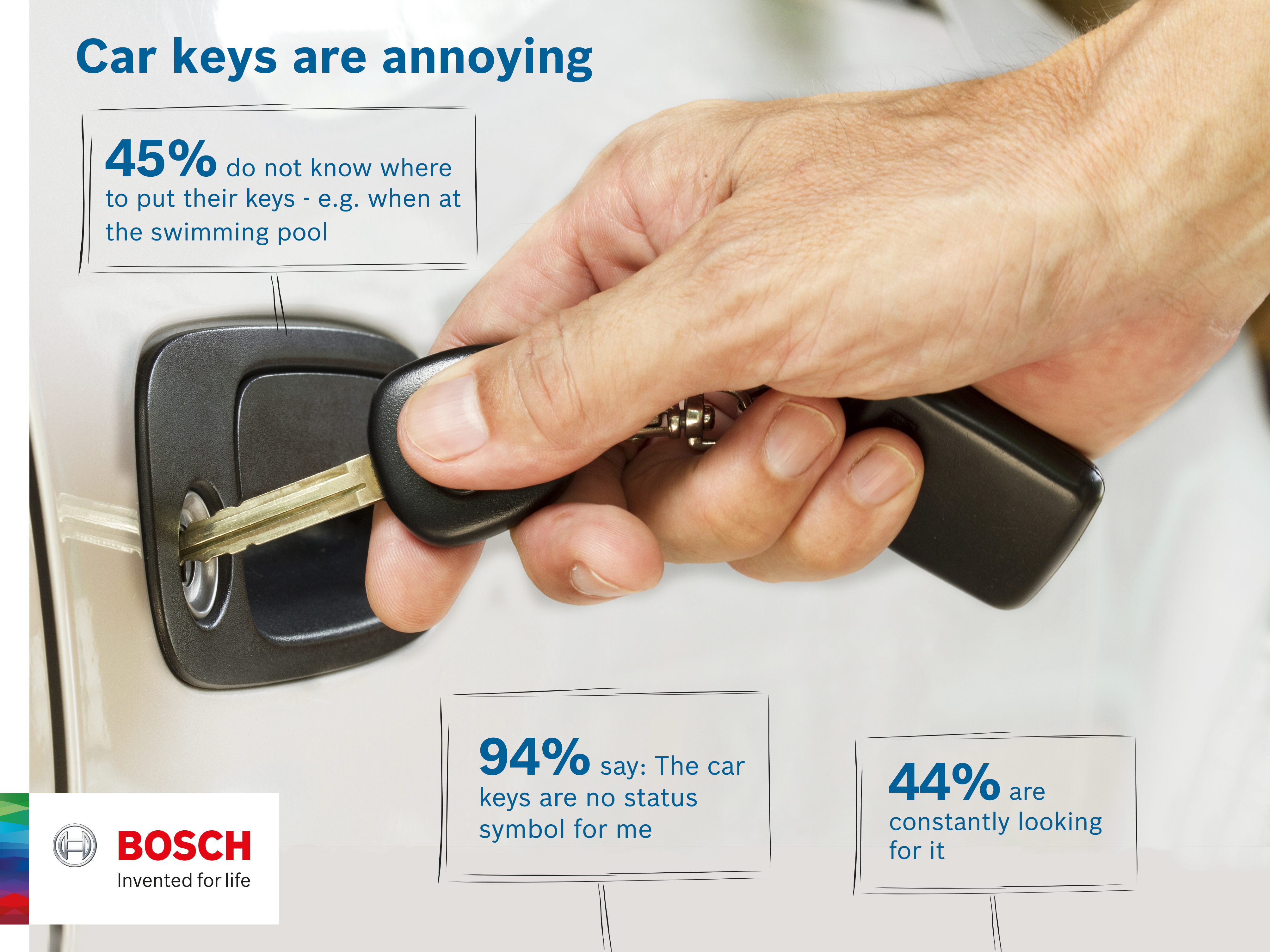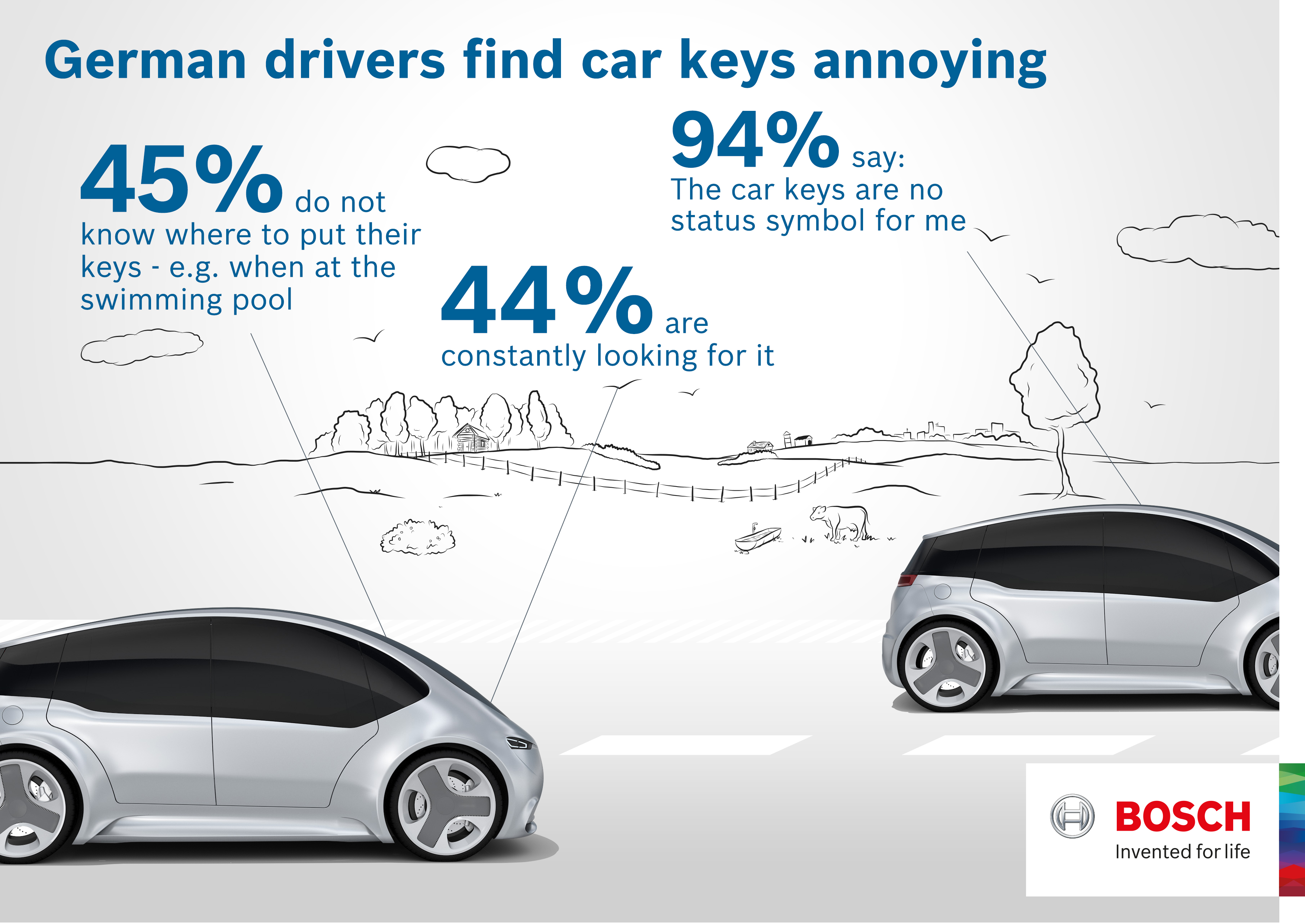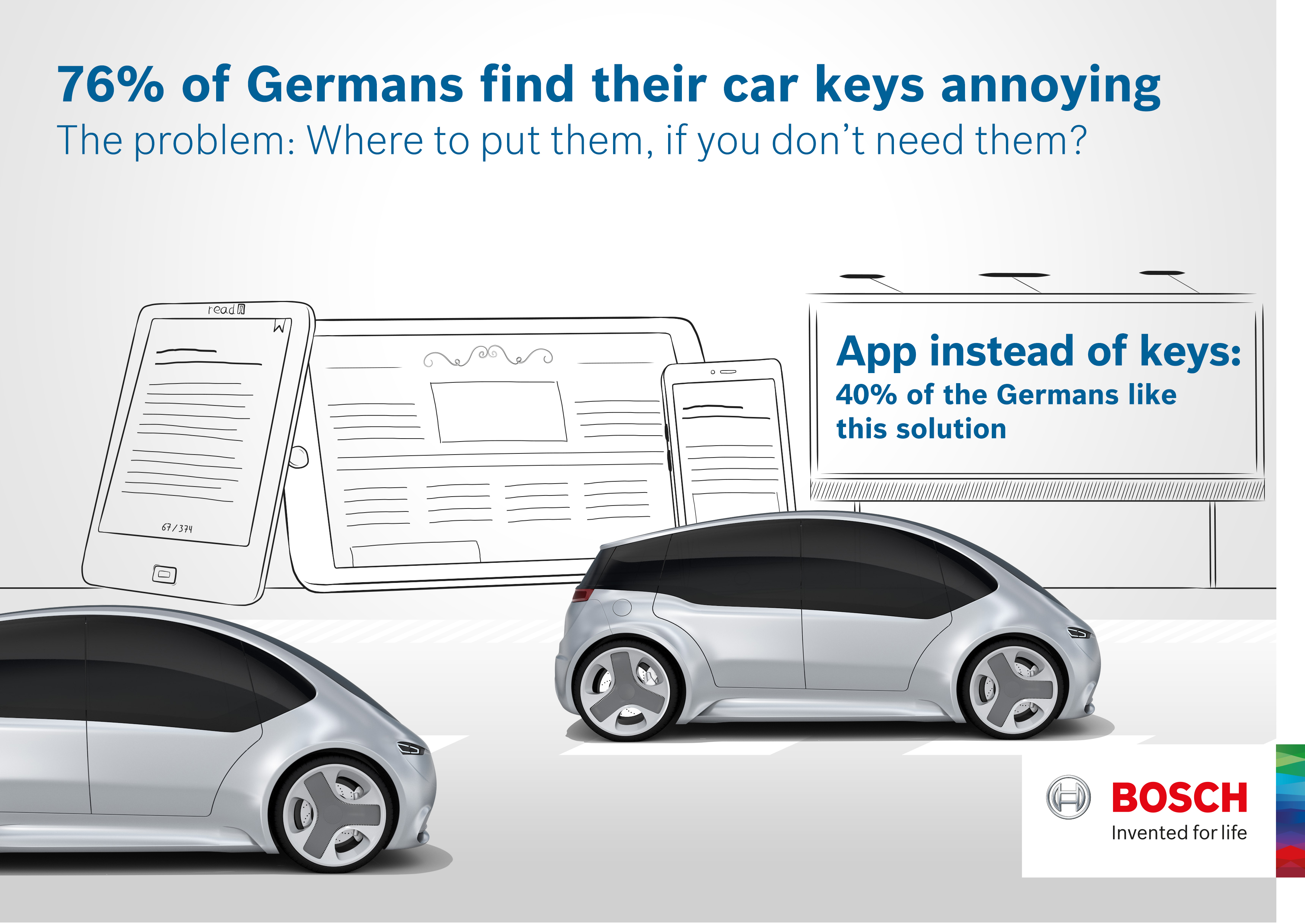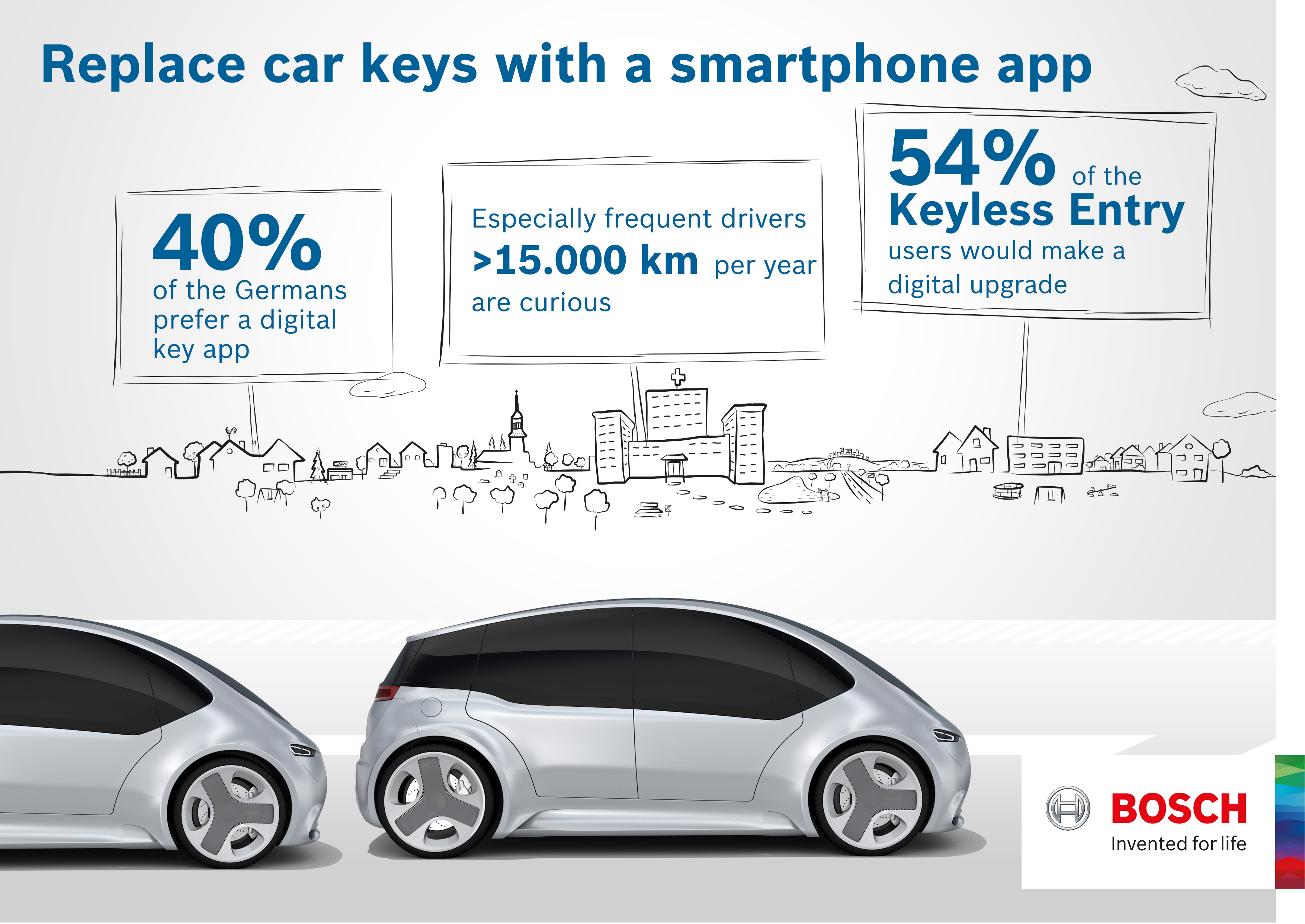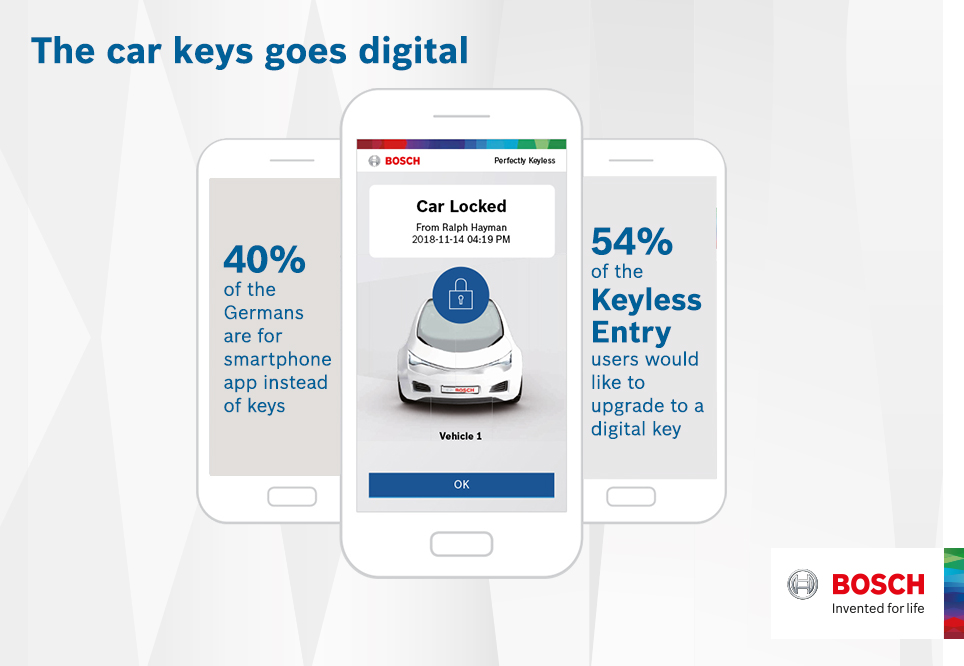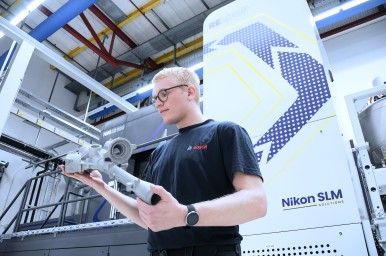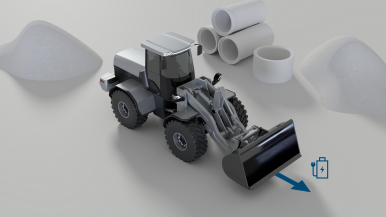Stuttgart – Seventy-six percent of Germans found their car keys a pain at one time or another. That is the result of a representative survey conducted by PULS, a market research institute, on behalf of Bosch*. Especially drivers below the age of 40, and those who drive a lot, have had negative experiences with conventional car keys. It starts with simple logistics: they don’t know where to put their keys (45 percent of respondents), e.g., when at the swimming pool, they misplace them and take ages to find them again (44 percent), while some have even lost them altogether (38 percent). Some used to view car keys with wireless remote controls and automaker’s logo as a status symbol; now only 6 percent of those surveyed do. It comes as no surprise, then, that around 40 percent of respondents could already imagine replacing them with a smartphone app. “The advantages of a digital car key are obvious – it is convenient, secure, and available any time and anywhere”, says Harald Kröger, president of the Bosch Automotive Electronics division. Bosch is developing the Perfectly keyless app to enable drivers to automatically unlock and start their vehicles without using a key or reaching for their smartphone. Sensors integrated in the vehicle recognize the owner’s smartphone and unlock the vehicle door for that person only; the level of security offered is comparable to fingerprint technology. It is no problem to deactivate the system if the smartphone is lost. The app can also be used to allow access by other drivers for a limited period of time.
Press release: Bosch system is the “key” to preventing digital car theft
Press release: No more lost keys
Perfectly keyless at Bosch Mobility Solutions
Mobility Solutions is the largest Bosch Group business sector. It generated sales of 42.1 billion euros in 2020, and thus contributed 59 percent of total sales from operations. This makes the Bosch Group one of the leading automotive suppliers. The Mobility Solutions business sector pursues a vision of mobility that is safe, sustainable, and exciting, and combines the group’s expertise in the domains of personalization, automation, electrification, and connectivity. For its customers, the outcome is integrated mobility solutions. The business sector’s main areas of activity are injection technology and powertrain peripherals for internal-combustion engines, diverse solutions for powertrain electrification, vehicle safety systems, driver-assistance and automated functions, technology for user-friendly infotainment as well as vehicle-to-vehicle and vehicle-to-infrastructure communication, repair-shop concepts, and technology and services for the automotive aftermarket. Bosch is synonymous with important automotive innovations, such as electronic engine management, the ESP anti-skid system, and common-rail diesel technology.
The Bosch Group is a leading global supplier of technology and services. It employs roughly 395,000 associates worldwide (as of December 31, 2020). The company generated sales of 71.5 billion euros in 2020. Its operations are divided into four business sectors: Mobility Solutions, Industrial Technology, Consumer Goods, and Energy and Building Technology. As a leading IoT provider, Bosch offers innovative solutions for smart homes, Industry 4.0, and connected mobility. Bosch is pursuing a vision of mobility that is sustainable, safe, and exciting. It uses its expertise in sensor technology, software, and services, as well as its own IoT cloud, to offer its customers connected, cross-domain solutions from a single source. The Bosch Group’s strategic objective is to facilitate connected living with products and solutions that either contain artificial intelligence (AI) or have been developed or manufactured with its help. Bosch improves quality of life worldwide with products and services that are innovative and spark enthusiasm. In short, Bosch creates technology that is “Invented for life.” The Bosch Group comprises Robert Bosch GmbH and its roughly 440 subsidiary and regional companies in some 60 countries. Including sales and service partners, Bosch’s global manufacturing, engineering, and sales network covers nearly every country in the world. With its more than 400 locations worldwide, the Bosch Group has been carbon neutral since the first quarter of 2020. The basis for the company’s future growth is its innovative strength. At 129 locations across the globe, Bosch employs some 73,000 associates in research and development, of which nearly 34,000 are software engineers.
Additional information is available online at www.bosch.com, www.iot.bosch.com, www.bosch-press.com, www.twitter.com/BoschPresse.

